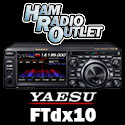READ THE article BY WB6NOA IN CQ PAGE 46
Discussion in 'Amateur Radio News' started by K4JM, Jan 26, 2010.
- Thread Status:
- Not open for further replies.
Page 1 of 5
Page 1 of 5
- Thread Status:
- Not open for further replies.










